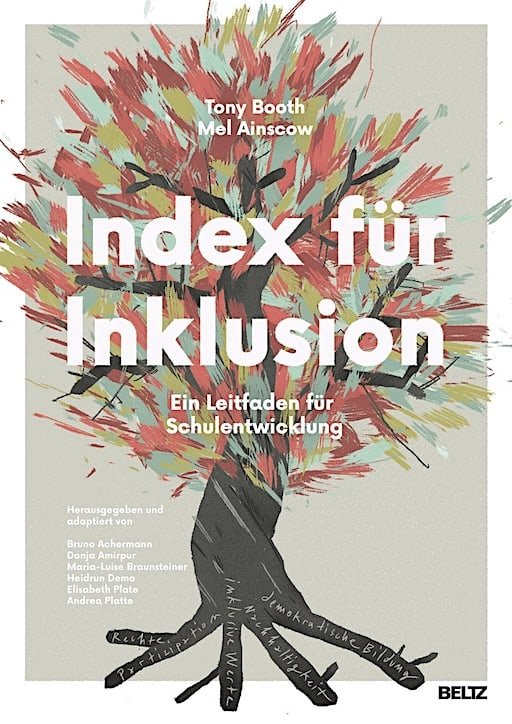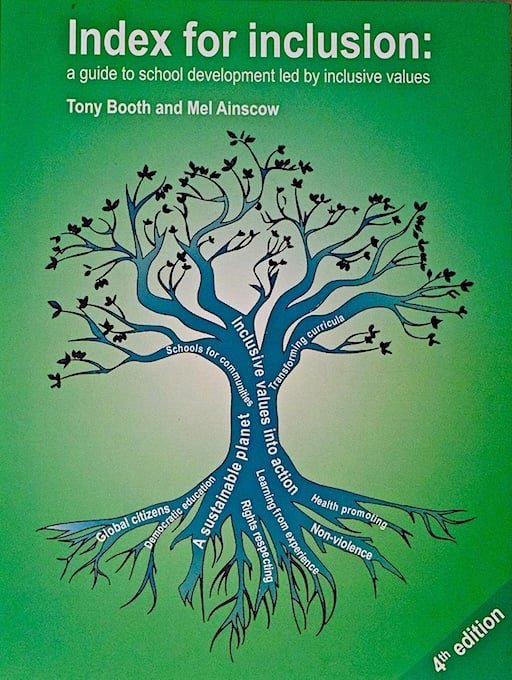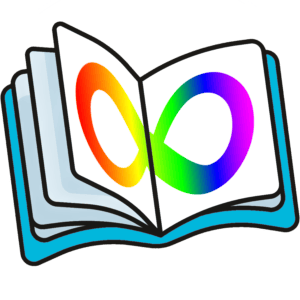For inclusion to succeed in educational institutions, comprehensive school development is essential. Experts led by Tony Booth (University of Cambridge) and Mel Ainscow (University of Manchester) developed the Index for Inclusion. This guide helps both newcomers to the topic of inclusion and experienced practitioners identify attitudes, barriers, potentials, and efforts related to inclusive education.
First published in 2000 by the Centre for Studies on Inclusive Education (CSIE), this standard reference work supports educators and school communities in developing and improving inclusive cultures, structures, and practices. The book is also structured around those three main dimensions. The Index is based on inclusive values such as rights, participation, equality, and respect for diversity – aiming to embed these values throughout school life.
It contains questionnaires and indicators designed to support reflection, analysis of the current situation, and the formulation of future goals:
- What are we already doing?
- What are we good at?
- Where do we want to go?
- What are our next steps toward greater inclusion?
- What do we want to work on?
The Index has been translated into numerous languages (including Arabic, Italian, Spanish, Portuguese, and many others) and is used internationally in schools and research contexts – from the UK to Spain, the United Arab Emirates, the Netherlands, Belgium, Hungary, and Portugal.
Available Editions
The current 4th edition (2016) is not free but can be purchased. However, earlier editions are available for free online:
Free earlier editions:
- 3rd edition (2011) in English – Index for Inclusion: Developing Learning and Participation in Schools
- German edition (2004) – Index für Inklusion (Tageseinrichtungen für Kinder): Lernen, Partizipation und Spiel in der inklusiven Kindertageseinrichtung entwickeln
- French edition for Quebec (2002) – Guide de l’éducation inclusive: développer les apprentissages et la participation dans l’école


It’s a way of thinking about the development of schools and even of the wider society according to a particular set of values which I call inclusive values. For many teachers these are just the values that drew them into education but then they become forgotten.
Tony Booth – YouTube
Who is the Index for?
The Index is addressed to the whole school community – primarily to educators and school leaders, but it actively involves students and parents in the process of school development:
- Teachers – to reflect on teaching approaches, curriculum, and participation
- School leaders (headteachers, principals, management teams) – to guide whole-school development and self-evaluation
- Support staff and assistants – to include their perspectives on participation and support
- Students / pupils – to give them a voice in identifying barriers and improvements
- Parents and caregivers – to be involved in inclusive planning
- Governors / school boards / local authorities – to connect school-level reflection with policy
The Index is a resource to support the inclusive development of schools. It is for all members of a school community who wish to play a part in improving learning and participation.
Booth & Ainscow, Index for Inclusion (CSIE, 2011)
We don’t know if any educational institutions in Luxembourg are currently working with this index. If you are using it yourself or know of one that does, please let us know and share your experiences!

